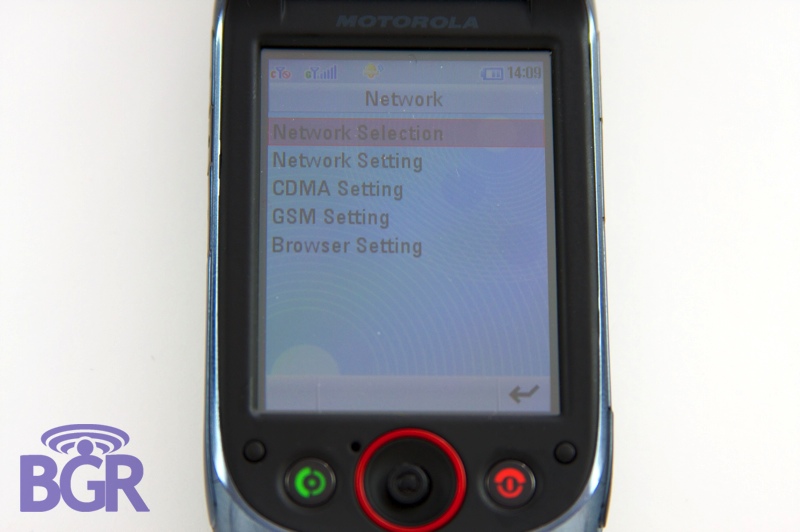

The Motorola MING A1800 is a highly intriguing device that recently leaked online. It can work with two SIM cards, but what's even better it can work with two networks standards as well - CDMA and quad-band GSM.
Boy Genius Report recently got a hold of the otherwise officially unannounced Motorola MING A1800, which comes as an update of the Linux-based MING lineup. Having in mind the CDMA functionality, it's almost sure that the handset will be targeted at the American market, still it would be perfectly usable n Europe too.
The Motorola MING A1800 also sports a 3 megapixel autofocus camera and Bluetooth. Unfortunately, no other specifications are available, but you can enjoy some of the BGR photos.
Source: http://www.gsmarena.com/motorola_ming_a1800_is_dualsim_dualnetwork-news-467.php





